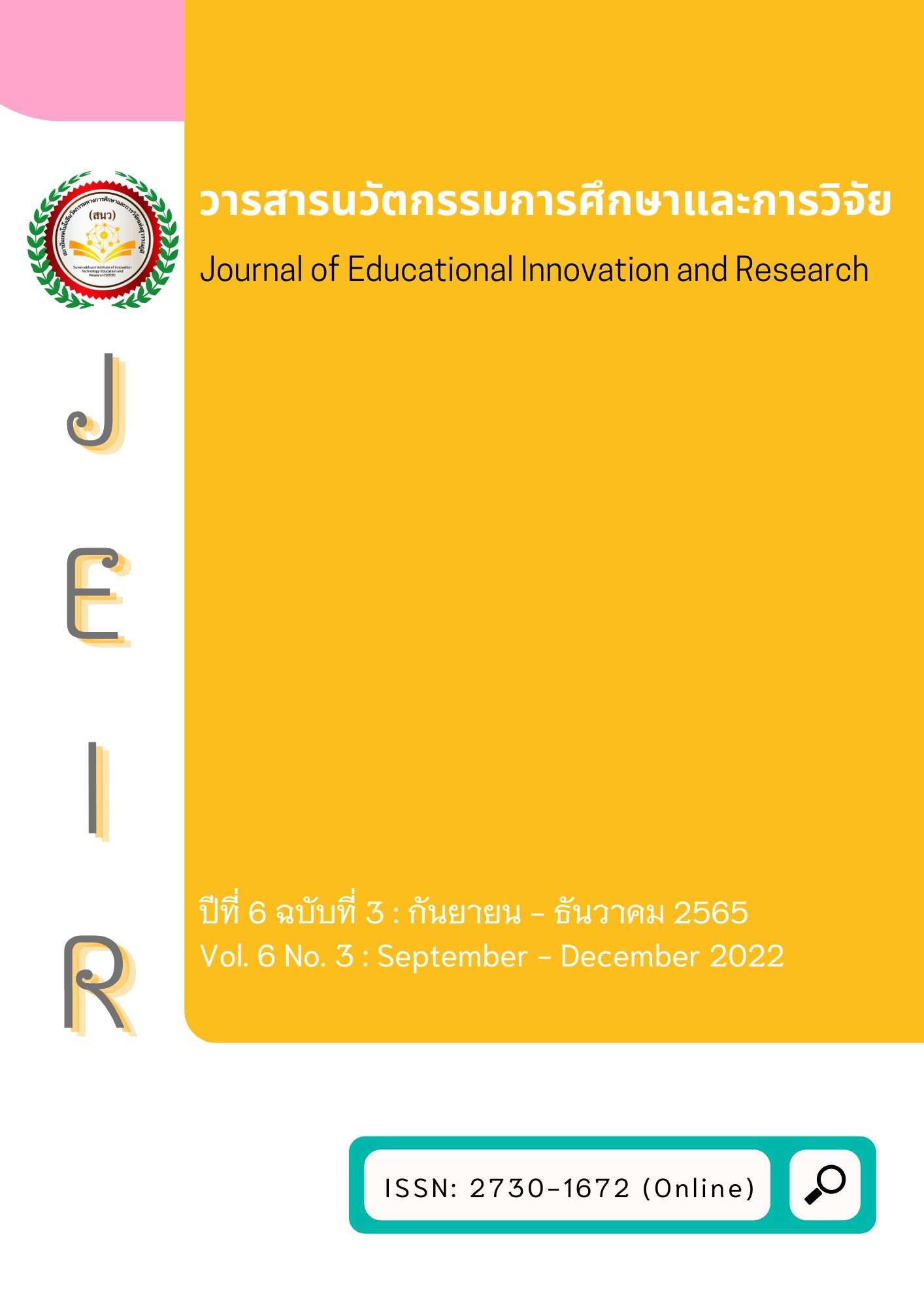Hunan Intangible Cultural Heritage Drama Project protection and Management
Main Article Content
บทคัดย่อ
This study aimed to analyze and synthesize the Hunan Intangible Cultural Heritage drama project protection and management and evaluated and gave suggestions to ICH teams. The qualitative research consisted of in-depth interviews with 25 participants who had ever been participated in the management work of ICH protection from the field of government, culture, education, and research units as well as inheritors of ICH at the national, provincial, municipal, and district levels. Subsequently, all the data were analyzed and synthesized until the solution was crystallized: first, the formulation and implementation of relevant policies; second, the reform and development of the opera troupe; third, the cultivation of opera talent; and finally, fourth, the performance of the opera market. However, the authors gave their ICH team a number of recommendations.
Article Details

อนุญาตภายใต้เงื่อนไข Creative Commons Attribution-NonCommercial-NoDerivatives 4.0 International License.
เอกสารอ้างอิง
Cheng shiyue. (2014). Theoretical discussion on the inheritance of ethnic traditional culture in minority community education. Journal of Tianjin R & TV University, (1),76-80.
Chen Xiaohong, YU Wenlong. (2018). Inheritance and Protection of intangible Cultural heritage of Dong nationality in Hunan. Journal of Hunan Institute of Humanities and Technology, (3), 156-168.
Fan guo. (2016). Research on the protection and innovation mode of intangible cultural heritage based on the development of hunan cultural industry. Industry and technology BBS, 45, 221-232.
Fan zuyin. (2006). Reflections on the protection of intangible cultural heritage. Music research, March, 11-12.
Fan shengbiao, he shengsheng. (2016). Discourse analysis on three basic issues of "intangible cultural heritage" protection. Journal of chongqing university of arts and sciences (social science edition), (1),7-11.
Georges Condominas. (2004). Researching and Safeguarding the Intangible Heritage. Museum International, 57, 21-31.
He Xingliang. (2005). Protection of intangible Cultural Heritage and national Modernization. Journal of Central South University for Nationalities (Journal of Humanities and Social Sciences), (3), 289-293.
Huang Wenlong. (2018). Investigation and Analysis of Intangible Cultural Heritage Tax revenue in Hunan. Journal of Hunan Taxation College, (6), 89.
Liu Shujuan, Wu Song. (2010). Current Situation and Countermeasures of legal protection of Intangible Cultural Heritage in Hunan. Journal of Hunan Public Security College, (12), 89.
Long Xianqiong. (2006). Theoretical Reflections on the connotation, Characteristics and Protection Principles of Intangible Cultural Heritage. Journal of Hubei Institute for Nationalities (Philosophy and Social Science edition), (5), 548-552.
Lourdes Arizpe. (2004). Intangible Cultural Heritage Diversity and Coherence. Museum International, 56, 130-136.
Luo ChunPei. (2007). Research on tangible utilization of intangible cultural heritage in tourism. Zhejiang gongshang university, (2), 26.
Wang Weikai (2012).A Review of the Protection Methods of Intangible Cultural Heritage in Japan and Korea. Chinese Urban Economy, (1), 23-36.
Wang YuLing (2009). Research on the development mode of xinjiang intangible cultural tourism resources. East China normal university, 1, 13-16.
Wim van Zanten.(2004).Constructing New Terminology for Intangible Cultural Heritage. Museum International, 56, 36-44.
Xiong Xianghua (2013). Research on the Inheritance of intangible Cultural Heritage from the perspective of school Education. Guizhou Ethnic Studies, 25, 112-120.
Yao Shun (2014). On the construction of hunan Intangible Cultural Heritage Database. Journal of Agricultural Books and Information, 9, 45.
Zhong-Kui Rong. (2008). Family education: what have you done in the inheritance of traditional culture? on the inheritance of traditional culture in current family education in China. Education theory and practice. (1), 54-57.


